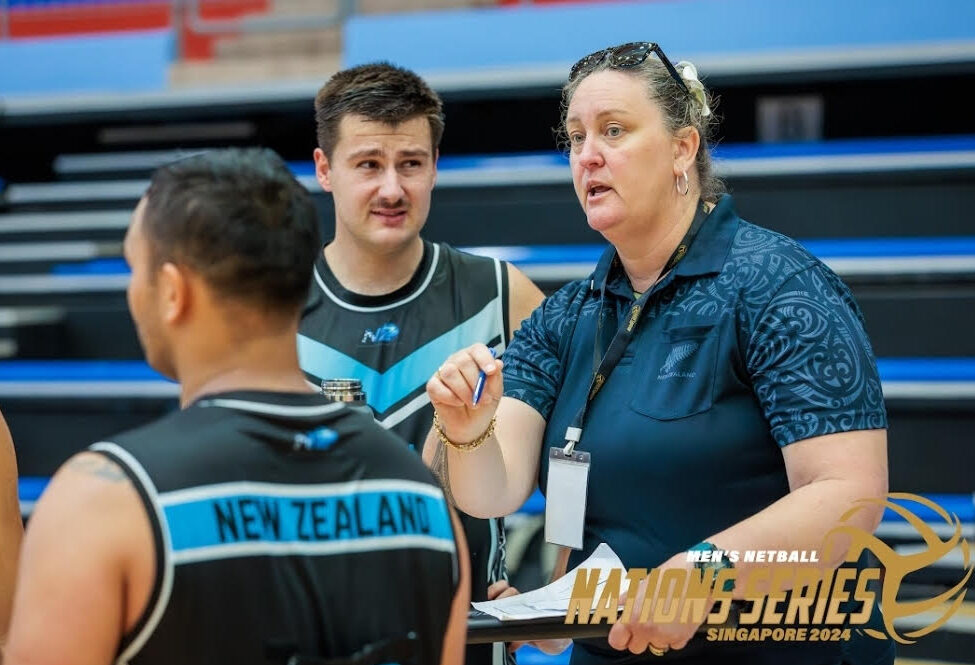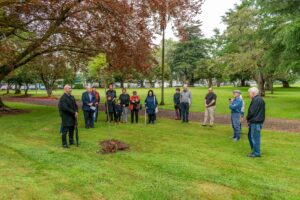As a competitive netballer, Michelle Tupper would practise against men’s teams, but over the years, she watched how the male iteration of the sport came into its own.
Michelle was witness to just how far men’s netball has developed in New Zealand when she travelled with the A team to the Merlion Netball Cup in Singapore.
Held in December last year, Michelle said the tournament – the Men’s Nations Series – aimed to develop the talent of male players and expose the sport around the world.
“Our team had only two trainings together before taking the court in the tournament,” she said.
“Being self-funded means opportunities to get together prior to the tour for trainings and camps is just too expensive for the players and management.”
Despite this, the NZA men’s team had some “amazing moments on court,” beating Hong Kong and Singapore.
Also competing was an England U25 team; an Australia U21 team; and Fiji – whose “great Polynesian flair” saw them winning the competition, with New Zealand finishing in fourth.
Michelle’s experience includes playing, coaching, and managing across ladies, mixed and men’s netball.
After representing her home country of South Africa, she travelled to New Zealand in 2000 on a five-month contract to play for the Waikato Bay of Plenty Magic.
After the season ended, she was encouraged to stay and play for Waikato in the National Provisional tournament [NPC] – which they won.
She played competitively until 2018; however, after suffering a knee injury, she said she needed to look more seriously at coaching and managing.
She was introduced to the men’s sport when a friend invited her to help out as a coach of the Tāmaki Makaurau mixed team.
“I loved coaching the men,” she said. “You can be direct, call it like it is, and they are physically and tactically brilliant in a traditionally women’s sport.
“I have done heaps of rep, club, and school coaching over the years, but loved the challenge of the men’s game. I enjoyed thinking of how to extend the players to fit their abilities, thinking, and willingness to play the game we love.”
Michelle said that when she was a player, her teams used to practise against men’s squads, and while there had been a male competition in New Zealand for four decades, it had only started to stand up “on its own merits” in recent years.
“[It’s] developing into a version that I think will grow bigger than the women’s game in future,” she said. “It is dynamic, fast, innovative, and physical. A great watch.”
Michelle said attending the world series as team manager – sometimes doing the team’s laundry until 2 o’clock in the morning – allowed her to find “so much joy” in being part of a player’s growth.
She teaches at Thames High School and coached the Senior A team in 2024, and said many male students had expressed their desire to play netball, too.
Her next mission is to continue her coaching pathway with Netball New Zealand and “to seek out and grab any opportunities to learn, coach, and grow”.
“I would also love to see more financial investment in the men’s game, so in the future we can be more competitive and truly showcase our talent more accurately.”
BY KELLEY TANTAU





